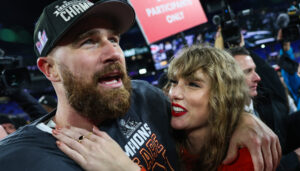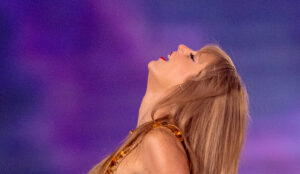It’s an important lesson for politicians: never give your enemies a name. Hillary Clinton did it, disastrously, with her off-the-cuff announcement about a “basket of deplorables”. Did it cost her the election? On its own, no, but it certainly didn’t help. Trump supporters, on the other hand, embraced it. Female fans labelled themselves “adorable deplorables” and hand-embroidered the slogan on baseball caps.
Eight years later, the Republicans are suffering from the same mistake, although this time the fatal phrase emerged years before the campaign. In 2021, J.D. Vance (then a Republican candidate for the Senate) gave an interview to Tucker Carlson (then a Fox News host), in which he attacked what he had described as the “childless Left”. The USA, Vance told Carlson, was being run by “a bunch of childless cat ladies who are miserable at their own lives and the choices that they’ve made and so they want to make the rest of the country miserable, too”.
Childless cat ladies. Regrettably for Vance and the Republicans in general, it is a great phrase: pointed, memorable — and ripe for the reclaiming. Which is why, when Taylor Swift declared her backing for the Democrats on Tuesday, she did it by posting a picture to Instagram of herself holding one of her three cats (the cat in question is Benjamin Button, a ragdoll). And she signed off: “Taylor Swift, Childless Cat Lady.” Elon Musk responded on X with a gallant offer to impregnate her, which will do little to diminish accusations that Trump supporters are weird.
Her announcement was hardly surprising. Swift backed Biden/Harris in 2020 and has previously lent her support to liberal causes including gun control and abortion rights. But it was an anxiously awaited one. Other pop stars had declared their affiliation long ago: Charli XCX tweeted “kamala IS brat” almost as soon as the vice-president declared her run for the White House. And hours before Swift’s post, The Guardian published “Is Taylor Swift a secret Trump supporter?” The evidence for this was a photograph of her hugging a friend who had liked a Trump post on Instagram. (McCarthyism, apparently, can change its shape but never die.)
And it is a significant move. Swift’s cultural heft makes her a fearsome political force. When she shared a link to a voter registration site in 2023, there were 35,252 new registrations that day; notably, this included a 115% increase in 18-year-olds, who are more likely to vote Democrat. Swift’s audience also skews female, which is significant for an election held in the shadow of the Dodds Supreme Court decision which undid Roe vs Wade. Bluntly, the more women vote, the harder it becomes for Trump to win.
But even though Swift has embraced her electoral power now, she’s historically been cautious. As a young singer-songwriter on the Nashville scene, she cultivated an apolitical stance. One of the country acts she had first been inspired by as a child were the Dixie Chicks (now simply called the Chicks): in 2003, their career was all but destroyed after a member of the band criticised George W. Bush during a concert. “They were made such an example that basically every country artist that came after that, every label tells you, ‘Just do not get involved, no matter what,’” said Swift in 2019.
Five years on, Swift is much more comfortable pinning her colours to the mast. But she still carries some of the burden of being — as the title of her 2020 film tagged her — Miss Americana. Nashville may be behind her now, but the similarly conservative-leaning National Football League is firmly in her present. That’s thanks to her boyfriend, the footballer Travis Kelce, who has become more established in her public life than any of her previous partners. They are a formidable team: between them, they cover the worlds of sports and pop music, male and female, Right-coded and Left-coded. A homecoming king and queen for the nation.
But Swift is more than an individual. She’s a business. Michael Jordan’s truism that Republicans still buy sneakers holds in the music industry too: Republicans stream songs and buy concert tickets and merch as well. For Swift, the art is to cultivate her own positions without alienating half her potential US market. It’s a problem that other, more explicitly political artists have been learning to navigate since Swift’s own political coming-out. Chappell Roan, for example, is all-in for LGBTQ causes. But in interviews, she has stressed her Midwest roots and compassion for people with opposing views: “I know where they’re coming from. It’s just not that black-and-white.”
For Swift, a crack along the lines of “basket of deplorables” would probably be even more calamitous than it was for Clinton — and absolutely devastating for her other half. Hence what looks like the careful orchestration of the announcement. That hug with her problematically pro-Trump friend, fellow NFL WAG Brittany Mahomes? The rune readers were wrong to see it as an endorsement of Mahomes’s politics, but probably right to see it as a deliberate announcement of something. The message of the hug is that friendship comes before partisanship. In Swiftworld, you can have your beliefs without needing to cancel people from life for having different ones.
I hesitate to read too much into a paparazzi shot, but maybe this is a good sign for American democracy. Back in Swift’s days of silence, there wasn’t much pressure for her to speak out on politics, because there wasn’t a strong expectation in the Noughties and early Tens that a teen pop star would have any politics to speak of. Their job was to look pretty and be air-headedly inoffensive: nobody expected to know how Britney Spears was going to vote.
That changed with the great politicising of everything that happened in the mid-tens. First, “feminist” went from suggesting an alarmingly confrontational woman to sounding new, exciting, even sexy: Beyoncé danced in front of the word in 2013. Slogans like “silence is violence” came into popular use, insisting that anything less than outright campaigning amounted to complicity with evil. More importantly, social media meant that silence had become perilously easy to detect. Lending your support to the Black Lives Matter cause, for example, was as simple as posting a black square to your grid — so how much of a closet racist would you have to be if you couldn’t even do that much?
Personal relationships began to be treated as a battleground. Patronising Left-wing guides on how to handle Thanksgiving began to proliferate after Trump was elected: “It’s our responsibility to go home and have the hard conversations with our family members, because, in many cases, only we have the power to reach them and begin the long work of rooting out bigotry in our communities,” said one cringingly solemn article on the website Mic. But these had their match from the Right: the Daily Signal, an offshoot of the conservative Heritage Foundation, offered tips on “how to be persuasive about politics with your liberal relatives”.
As strongly as Swift’s history had compelled her to hold her tongue, the new order dictated that she should speak out. She described herself as a feminist for the first time in 2014. Just two years earlier, she’d answered a question about whether she was a feminist by saying “I don’t really think about things as guys versus girls”; perhaps significantly, between those two points, she was sexually assaulted by a DJ, against whom she later won a civil suit. From there, her political evolution evolved steadily, bringing us to the present day, when a Swift endorsement was coveted enough for Trump to share fake images implying he had her backing.
Vance’s jibe at “childless cat ladies” is the nonsensical endpoint of the era in which everything was politicised by default — even pet ownership, even whether or not you have procreated. Anti-feminist claplines might play well to a tame audience such as Tucker Carlson, but in the wild, a lot of women are going to hear this as the Republicans rejecting them: if being a “childless cat lady” makes them liberal, then so be it — they will cast their vote accordingly.
Swift’s response is mindful and demure and resolute. It shows a grasp of political messaging that Vance and co. have failed to get anywhere close to: pop stars have learned the power of the big tent, while right-wing politicians flail around for the pleasure of their fandoms. This is, of course, the opposite way round to how it ought to be, but there’s hope for the US in Swiftian politics. Maybe, it’s time to stop putting people into baskets.
Disclaimer
Some of the posts we share are controversial and we do not necessarily agree with them in the whole extend. Sometimes we agree with the content or part of it but we do not agree with the narration or language. Nevertheless we find them somehow interesting, valuable and/or informative or we share them, because we strongly believe in freedom of speech, free press and journalism. We strongly encourage you to have a critical approach to all the content, do your own research and analysis to build your own opinion.
We would be glad to have your feedback.
Source: UnHerd Read the original article here: https://unherd.com/




